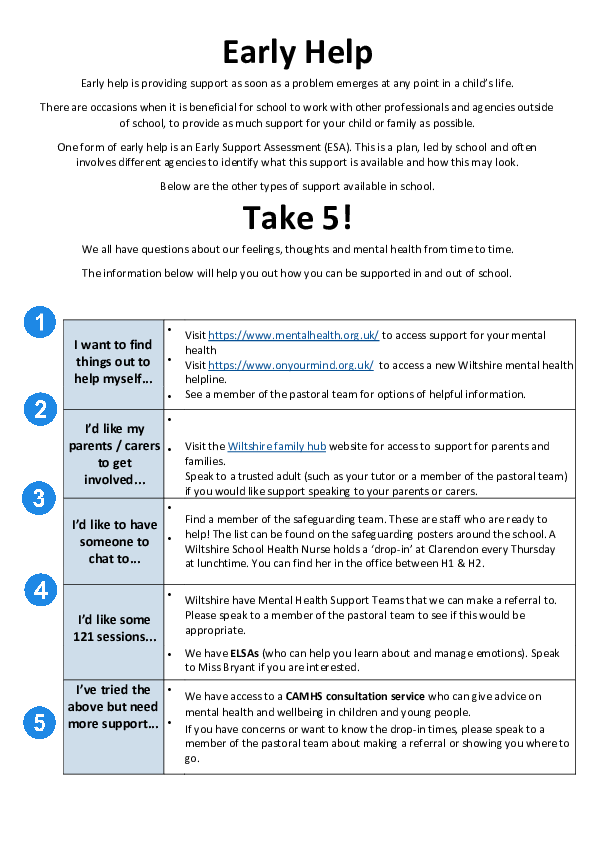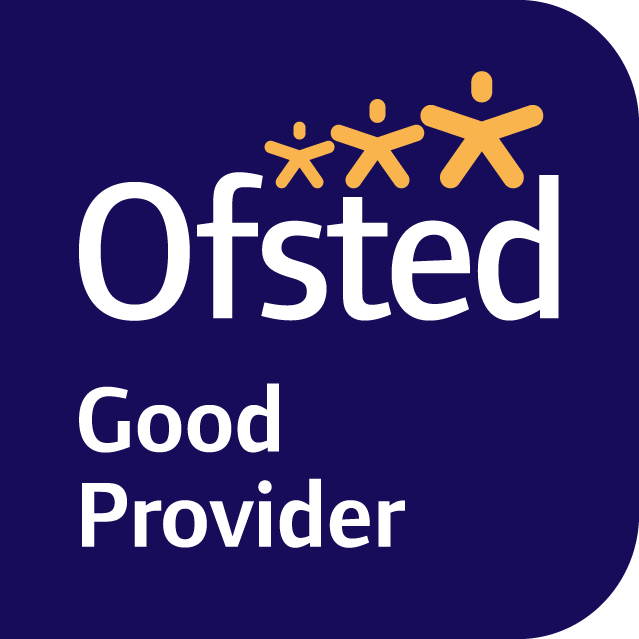- Home
- Our School
- Safeguarding
Safeguarding
Safeguarding at Clarendon Academy
Everyone who comes into contact with children and their families has an important role to play in safeguarding children. School staff are particularly important as they are in a position to identify concerns early and provide help for children, to prevent concerns from escalating. Schools and their staff form part of a wider safeguarding system for children. At Clarendon Academy we are committed to the well-being and safety of all our children and we will always adopt a sensitive and caring approach to support them and their families.
What is Safeguarding?
Safeguarding is the action that is taken to promote the welfare of children and protect them from harm.
Safeguarding means:
- protecting children from abuse and maltreatment
- preventing harm to children’s health or development ensuring children grow up with the provision of safe and effective care
- taking action to enable all children and young people to have the best outcomes
Safeguarding is everyone’s responsibility.
What is Child Protection?
Child protection is part of the safeguarding process. It focuses on protecting individual children identified as suffering or likely to suffer significant harm. This includes child protection procedures which detail how to respond to concerns about a child.
Safeguarding at Clarendon Academy
At Clarendon Academy we work to our values to ensure that every child, regardless of their age, disability, gender reassignment, race, religion or belief, sex, or sexual orientation, has a right to equal protection from harm.
Ms Emma Knight is the Clarendon Academy Safeguarding link Academy Councillor and works with the school safeguarding team to support and sustain a safe and child-centred culture across all our school. Email e.knight@clarendonacademy.com
SCHOOL SAFEGUARDING TEAMS CONTACT INFORMATION AND POLICY
Designated Safeguarding Lead: Mrs Sarah Hunter-Newton
Email: sdn@clarendonacademy.com
Telephone number: 01225 762686
Telephone number (term time): 07511700836
Telephone number (out of school hours): 07511700836
Out of hours Children/Students can seek support via Childline on 0800 1111. The phone call is free and it is a confidential helpline.
Click here to see our safeguarding policies
If you have a concern about a child
If a child is in immediate danger, call 999. The Police will assess the situation and take the appropriate action to protect the child.
If you are a parent or another adult who has concerns about the safety of one of our children/students, please contact Mrs Sarah Hunter Newton, our Designated Safeguarding Lead.
If the child is not at immediate risk, contact your local child protection services. Their contact details can be found on the website for the local authority the child lives in. Wiltshire Multi Agency Safeguarding Hub can be contacted on: 0300 4560108 8.45am- 5pm, out of hours 0300 456 0100.nt or another adult who has concerns about
Many people worry, “What if I am wrong?” but if we take a child-centred approach to safeguarding, we should all be asking, “What if I am right?” By raising a concern, you could be protecting not just one child, but future children. Whenever you are worried, whether it’s a big or little worry, always tell someone who can help.
In England, the Department for Education is the government sector responsible for all child protection policy. On a local level, local safeguarding partners such as the police, the local authority and designated safeguarding groups are in charge of managing any complaints or issues and ensuring that the principles of the Children Act are upheld.
Please click here to view our Prevent Duty Risk Assessment
Response-to-reports-of-sexual-violence-flowchart-August-2025-.pdf

Clarendon Academy ‘Early Help’ offer and Procedures.
|
Intent |
At Clarendon we believe Early help, also known as early intervention, is support given to a family when a problem first emerges. It can be provided at any stage in a child or young person's life. Statutory guidance in each nation in the UK highlights the importance of providing early intervention, rather than waiting until a child or family’s situation escalates. Early help services can be delivered to parents, children or whole families, but their main focus is to improve outcomes for children. For example, services may help parents who are living in challenging circumstances provide a safe and loving environment for their child. Or, if a child is displaying risk-taking behaviour, early help practitioners might work with the child and their parents to find out the reasons for the child's behaviour and put strategies in place to help keep them safe. Providing timely support is vital. Addressing a child or family's needs early on can reduce risk factors and increase protective factors in a child's life (Early Intervention Foundation (EIF), 2021). Early help can be offered:
|
|
Recognising |
Identifying a child or young person who may benefit from early help Signs that a child or young person may benefit from early help include:
(Department for Education (DfE), 2018). Some groups of children may be more likely to need early help than their peers. These include children who:
Ways Clarendon can identify the need for Early Help
|
| Responding |
Protective factors can reduce risk to a child's wellbeing. As a school we can offer:
There are a lot of external agencies that offer support. Please see the link below to access the full list on our website |
|
Reviewing |
We will review these interventions at regular intervals, depending on the support given. We would anticipate this being at least termly. |





